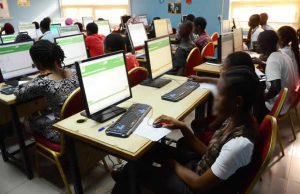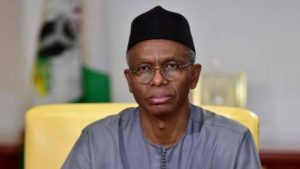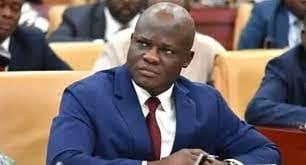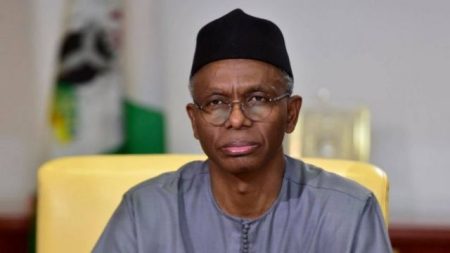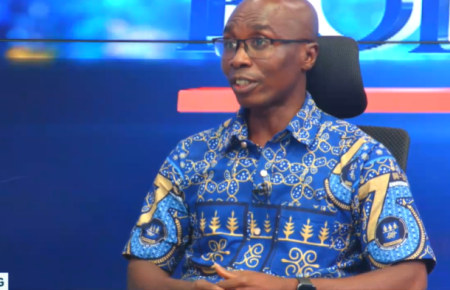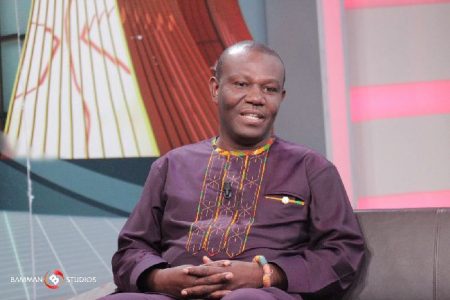The ongoing debate surrounding illegal small-scale mining, commonly known as “galamsey,” in Ghana has once again taken center stage, with the recent proposal by Ahmed Ibrahim, Minister for Local Government, Chieftaincy, and Religious Affairs, to empower traditional chiefs in the fight against this environmentally destructive activity. Ibrahim argues that the current democratic system has effectively rendered chiefs powerless in addressing galamsey, asserting that reinstating their authority to summon and sanction illegal miners would significantly curb the practice. He highlights the current scenario where miners often bypass traditional authorities by obtaining permits directly from government agencies, leaving chiefs with limited recourse even when mining operations pose a direct threat to their communities. This, he contends, has created a loophole that fuels the galamsey menace.
Dr. Ekua Amoakoh, the 2024 NPP manifesto spokesperson on Health, has sharply criticized Ibrahim’s proposal, arguing that it represents a recycled and ineffective approach. She contends that the opposition National Democratic Congress (NDC), now in power, had previously been highly critical of the former New Patriotic Party (NPP) administration’s handling of galamsey and had promised innovative solutions. Amoakoh expresses disappointment that the NDC’s proposed strategy seems to be a rehash of previous methods, failing to deliver on their promise of a novel approach. She emphasizes that simply involving chiefs, a strategy previously employed, is not the paradigm shift that Ghanaians were led to expect.
Amoakoh’s criticism extends beyond the re-engagement of chiefs to encompass the NDC’s handling of the Environmental Protection (Mining in Forest Reserves) Regulations, 2022 (L.I. 2462). She points out that the NDC had pledged to repeal this legislation, which allows for mining in forest reserves under specific conditions, but has instead opted for a mere amendment. This, she argues, further demonstrates the government’s lack of commitment to implementing truly transformative changes in the fight against galamsey. The NPP spokesperson’s critique underscores the ongoing political tug-of-war surrounding this critical environmental issue, with the effectiveness of various proposed solutions remaining a subject of intense debate.
The crux of the disagreement lies in differing perspectives on the role of traditional authorities within the modern Ghanaian state. Ibrahim’s argument hinges on the belief that revitalizing the traditional power structures vested in chieftaincy is crucial for effectively combating galamsey. He posits that the current system, which often sidelines chiefs in favor of centralized government agencies, has inadvertently created a vacuum in local governance that illegal miners exploit. By restoring the chiefs’ ability to directly intervene and enforce sanctions, he believes a crucial layer of oversight and accountability can be re-established. This, he suggests, would be more effective than relying solely on government agencies, which may lack the local knowledge and connection to the communities most affected by galamsey.
Conversely, Amoakoh’s critique implicitly questions the efficacy of relying on traditional structures in addressing a complex issue like illegal mining. While not explicitly dismissing the role of chiefs, her emphasis on the need for innovative approaches suggests a preference for more modern and centralized solutions. Her disappointment with the NDC’s apparent reversion to previously implemented strategies highlights a concern that simply re-empowering chiefs without addressing the underlying systemic issues, including corruption and weak regulatory enforcement, is unlikely to yield significant results. The debate, therefore, reflects a broader discussion about the balance between traditional governance and modern state institutions in tackling contemporary challenges.
The controversy surrounding galamsey in Ghana underscores the intricate interplay of environmental protection, economic development, and socio-political dynamics. Illegal mining offers economic opportunities for some, particularly in impoverished communities, making it a complex issue to address without considering the livelihoods of those involved. Furthermore, the involvement of powerful actors and the potential for corruption further complicate efforts to effectively regulate the sector. Finding a sustainable solution requires navigating these complexities and balancing competing interests. The debate between Ibrahim and Amoakoh highlights the urgency and multifaceted nature of this challenge, with the future of Ghana’s environment and its communities hanging in the balance.


